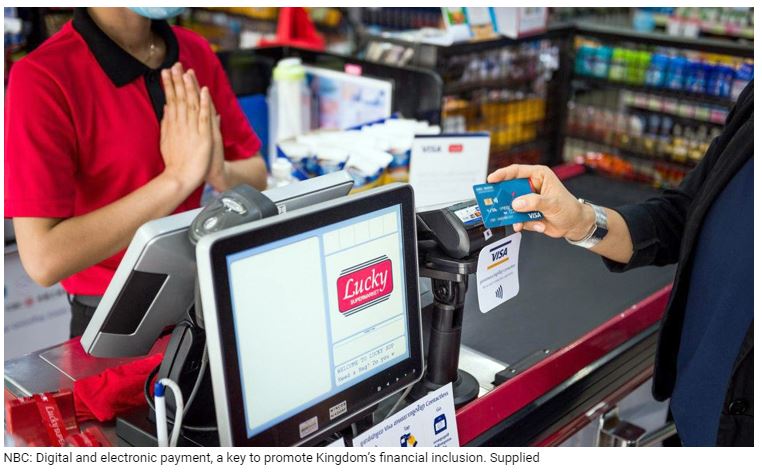Cambodia: E-payments, key to promoting financial inclusion
Cambodia has seen recent and rapid growth in digital and electronic payment services, where the platform is regarded as a key to promote the Kingdom’s financial inclusion.
The National Bank of Cambodia (NBC)’s report of Project Bakong Next Generation Payment System shows that financial inclusion is a primary agenda for the NBC and digital payment is one of the effective measures to ensure a cashless society where transactions could be accessible and affordable to every citizen.
“So far, this has been done by private sector players, especially payment service institutions (PSIs) that have been expending lots of effort to introduce innovative products that can better serve the market as a whole – people in urban areas as well as the unbanked through their large expansion of mobile and agent networks,” the report said.
Say Sony, senior vice-president and chief of the marketing management of PRASAC Microfinance Institution, said that digital and electronic payment services are important to promote financial inclusion in Cambodia, especially in rural areas. “They also promote unbanked people to either subscribe to digital payment platforms or open accounts at financial institutions which is a big step to encourage them to acquire financial services,” he said.
Sony said PRASAC has been developing its ecosystem system since 2010 for the readiness of digital banking.
“Within the digital payment system people can make payments to their business partners, relatives and friends anywhere, anytime in Cambodia. Some of the digital payment operators in Cambodia are also offering a cross-border payment service too,” he said, adding that PRASAC also has participated in several projects to develop digital payments such as FAST Service, Cambodia Shared Switch (CSS), Retail Pay and its Bakong Project.
According to the NBC statistic, the number of e-wallet accounts increased 64 percent from the previous year to 5.22 million in 2019 while the number of deposit accounts reached 7.62 million within the same period.
The bank said, on the other hand, money transfers by both banks and PSIs went up to $57.99 billion in 2019. Such efforts could be further encouraged by the authorities through the development of more legal and physical infrastructures.
Currently the NBC is launching Bakong, a project that has been introduced to address this by gathering all participants into one system where finance can be widely spread through their Bakong accounts that can be created through the Bakong app installed on smartphones.
“It is expected that Bakong will have the potential to bring the unbanked population into the formal financial sector that could contribute to the reduction of poverty in Cambodia,” the report said.
Digital and electronic payment services provided by the private sector are also a key enabler to promote financial inclusion. As such, a conducive and transparent regulatory framework is required to support the growth of the sector.
In other words, adoption by households and small and medium enterprises in the financial sector is an important element to support economic growth in the long term.
Currently, besides banking and financial institutions, there are another 24 PSIs operating on a standalone basis to provide services to the public, according to the NBC.
Data compiled by the NBC, shows that mobile payment by banks and PSIs accounted for 22.9 percent of the gross domestic product in 2019.
Source: https://www.khmertimeskh.com/50736465/e-payments-key-to-promoting-financial-inclusion/


 Thailand
Thailand




